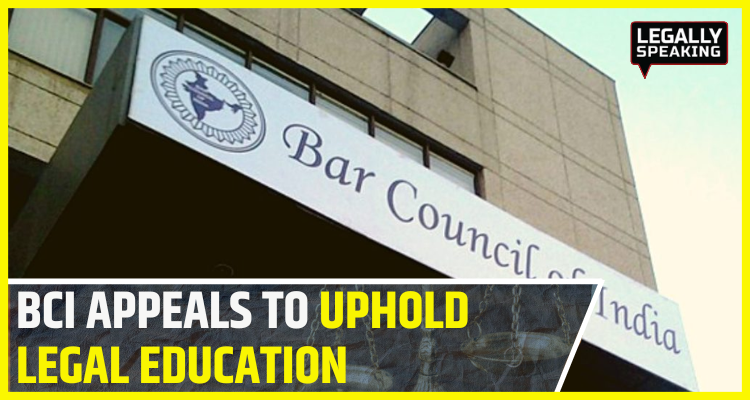
The Bar Council of India (BCI) has circulated a circular to vice chancellors and higher education departments nationwide, seeking their cooperation in maintaining the integrity and excellence of legal education.
This circular comes after the BCI expressed apprehensions regarding the rise of substandard law colleges in India. The Bar Council of India has authored this circular emphasizing the necessity for comprehensive inspections prior to issuing No Objection Certificates (NOCs) for new legal education establishments.
The BCI is an independent statutory body under the Advocates Act, 1961, which holds the authority to oversee legal education in collaboration with universities, ensuring that degrees conferred by them serve as qualifications for enrollment as advocates.
Earlier also a similar circular with resolution number 114/2015 dated June 6, 2015 was issued by the BCI, but it is regrettable that a blind eye was turned towards it. It was also addressed to all the states and the vice chancellors, clearly urged all state governments and universities to impose restrictions on granting no-objection certificates (NOCs) and affiliations for a period of three years.
Speaking about it, the BCI secretary Shrimanto Sen, noted in this particular circular, that “despite this resolute decision and the subsequent issuance of circulars to this effect, it is regrettable to note that over 300 ‘no objection certificates’ were issued by state governments, and affiliations were granted by universities. He further pointed out that this is concerning and this calls for urgent need for stricter adherence to regulatory measures to curb the unchecked proliferation of law colleges across the country.
In the circular he further pointed out that that universities have yet to fulfill the expected standards for conducting surprise inspections of affiliated law colleges. He went on to say that these shortcomings coming from the concerned parties are undermining the efforts to improve the standards of law in this country.
The circular highlighted the role of the state government and the universities while addressing the mushroom growth of substandard law colleges and clearly mentioned that this menace can be curbed by the state government’s Higher Education Department and the universities, which serve as the grassroots entities responsible for not upholding the standards for education in law.
The circular ended with an appeal to the universities and the Ministry of Education, urging them to join hands with BCI, helping them to uphold the sanctity and quality of legal education in India.




